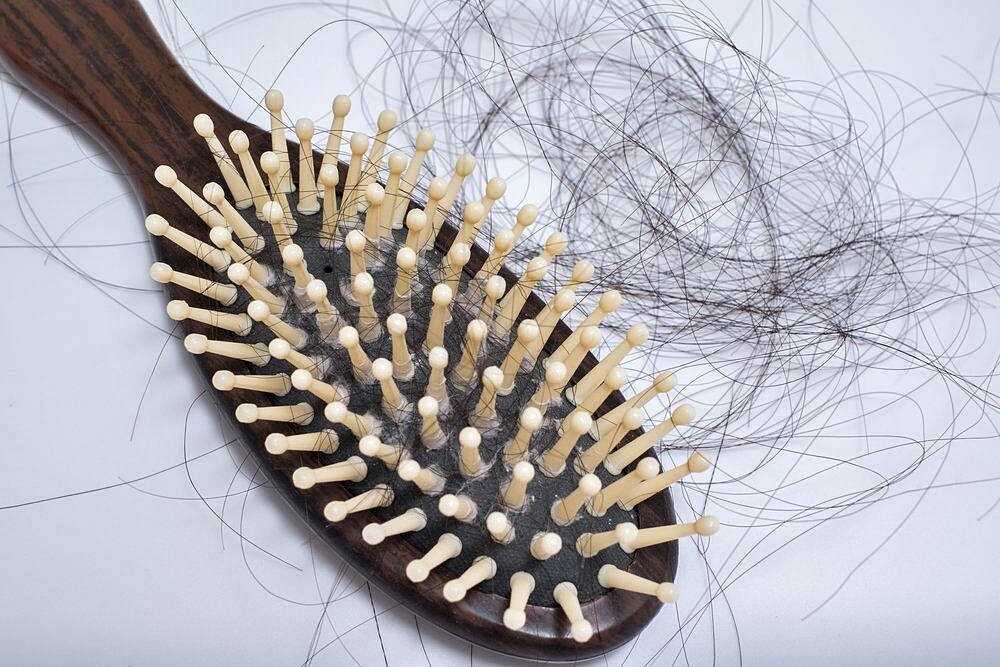Diffuse hair loss causes the hair to fall out evenly over the entire head. We explain what causes this and what helps against it.
What is diffuse hair loss?
The once thick hair becomes thinner and thinner and the scalp shimmers through more and more: If the hair becomes evenly thinner and falls out more than the normal 100 hairs per day, diffuse hair loss is often the result. This form of hair loss can also be recognized by the fact that there are no isolated bald spots. There can be various causes for this, such as diseases like hypothyroidism or hormonal changes. If the trigger for diffuse hair loss is removed, the hair usually starts to grow again.
Forms of diffuse hair loss
Unlike hereditary hair loss, experts distinguish two different forms of diffuse hair loss:
- Theologian phase: This is the more common form of diffuse hair loss. Hair loss occurs about two to three months after the occurrence of the cause. The hair is currently in the so-called resting or loss phase. Only when the trigger of diffuse hair loss is removed can the hair grow back – this usually takes six to twelve months. In theory, anyone can fall ill with this hair loss, but women are affected slightly more often than men.
- Anagen phase: The anagen phase is the acute form of diffuse hair loss. Here, the hair falls out already one to two weeks after the trigger has occurred – and still in the so-called growth phase. Hair loss occurs very quickly in this phase. An example of the cause of this form of hair loss is chemotherapy.
Causes of diffuse hair loss
There can be many different causes for diffuse hair loss. Among them are:
- Stress
- Various diseases, for example hyperthyroidism and hypothyroidism, skin diseases such as viral and fungal infections or psoriasis
- Iron Deficiency
- Lack of nutrients, for example due to a change in diet, a diet or as a side effect of diseases such as influenza
- Hormonal changes, for example due to pregnancy or menopause
- Care mistakes
- Chemotherapy and radiotherapy
- Medicines, for example for high blood pressure or acne
Since there are so many different possible triggers, one should consult a doctor to find out the possible causes of hair loss.
This treatment helps with diffuse hair loss
In order to get the hair loss under control, the respective cause must be treated. If, for example, medication triggers hair loss, it may be possible to change the medication in consultation with the doctor. Iron deficiency can, for example, be controlled by including iron-containing foods in the diet or using appropriate iron preparations. A blood test can clarify whether iron deficiency is present. Underlying diseases, such as thyroid disease, must also be treated.
If the hair loss is caused by a diet, it should be stopped. In order to lose weight permanently, a balanced diet in combination with some sport is a healthier alternative anyway. In this way, one can also prevent the lack of nutrients. If the hair falls out due to chemotherapy, this is usually a great psychological burden, especially for women. Psychological support, for example, can help here. In addition, health insurance companies usually cover the cost of a wig.
It is important to know that hair loss can often continue for two to three months after the cause has been removed before hair growth resumes.

